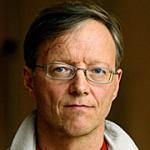The Center for Complex and Nonlinear Science
It is only in recent years that the scientific community has focused significant resources in understanding the complexity of nonlinear, distributed systems involving many interacting components. While the toolbox of methods for dealing with such systems is still relatively small, tools have been developed that provide useful qualitative characterizations of the behavior of non-linear dynamical systems. Over the last thirty years advances in the theory of nonlinear dynamics have made possible the qualitative analysis of nonlinear models involving finitely many dimensions. Many of the concepts that have emerged with the development of these tools are now well-known in nonlinear science, and include chaos, strange attractors, fractals and scaling.
More recently, an emerging focus has been on methods for characterizing the qualitative behavior of high- and infinite-dimensional nonlinear systems. These developments promise to put within our reach the qualitative analysis of more realistic models of the complex phenomena of interest to scientists. The power of these methods resides, in part, in the realization that the qualitative behavior of many classes of complex systems is insensitive to differences in the details of their underlying mechanisms and processes. Many apparently ``different'' systems exhibit qualitively similar (universality classes) of behaviours.
The purpose of the Center of Nonlinear Science (CNLS) is to make these techniques available and demonstrate to researcher in nonlinear science that, when used in conjunction with more traditional tools, these emerging methodologies are capable of providing relatively ``complete'' characterizations of important classes of nonlinear phenomena.










